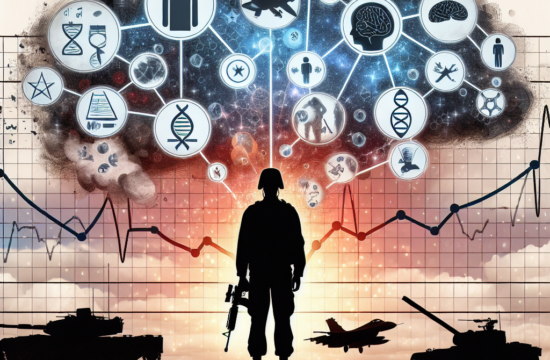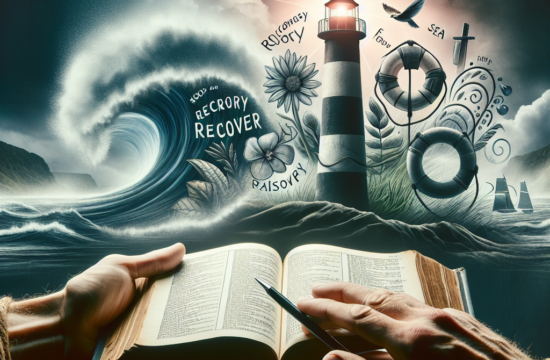Get Started with Recovery! Visit us for more Information and Support
==> Thank you for reading this post! Click Here If you are looking for support and Victory over PTSD.
Why War Trauma Therapy Is Essential for Healing
- Understanding War Trauma
- The Impact of Post-Traumatic Stress Disorder (PTSD)
- Benefits of Therapy for War Trauma
- Integrating War Trauma Therapy into Healing
Understanding War Trauma
What is War Trauma?
I’ve always found the concept of war trauma fascinating yet heartbreaking. War trauma encompasses the psychological and emotional repercussions faced by individuals exposed to the harsh realities of conflict. It isn’t just limited to combat soldiers; it can affect families, civilians, and anyone caught in the crossfire. This trauma often manifests in ways that can disrupt daily life, affecting relationships and well-being.
In simpler terms, one can think of war trauma as emotional wounds. These aren’t visible like a broken bone but are just as painful. For those who have experienced the chaos of war, it might feel like they’re carrying this invisible weight, a burden that colors their perception of the world around them. Understanding this is crucial as it sets the groundwork for appreciating the importance of therapy.
It’s essential to break the stigma surrounding war trauma. Many people have misconceptions, thinking those who suffer from it are weak or somehow less capable. On the contrary, acknowledging and addressing trauma requires immense strength and courage. This acknowledgment is the first step towards healing, and therapy plays a key role in this journey.
Signs of War Trauma
The signs of war trauma can vary widely among individuals. Some might seem fine on the surface, yet internally, they might be battling with deep-seated issues. Common symptoms include mood swings, anxiety, and sudden outbursts of anger. Others may experience nightmares or flashbacks, always feeling like they are reliving their worst moments.
In my experience, recognizing these signs is of paramount importance. People often dismiss their feelings, thinking they should just “get over it.” But emotions are not that straightforward. Simple acts, like being reminded of a traumatic event, can trigger overwhelming feelings, making it critical to seek help.
It’s also key not to ignore the social impact. War trauma can lead to withdrawal from social situations or strained relationships. I’ve seen friends isolate themselves when they could really use support. Creating an open dialogue about these issues can foster understanding and connection, which is vital in the healing process.
Why Understanding is Important
Understanding war trauma allows us to approach those affected with empathy. When we take time to listen and provide a safe space, we contribute to their healing. An empathetic approach can be transformative. For instance, just being there to listen can help someone feel validated and less alone in their struggles.
Moreover, understanding trauma at a societal level enables communities to better support returning veterans and civilians affected by war. Knowledge translates to action. When communities are informed, they can create programs and initiatives designed to assist those in need, which is incredibly impactful.
Having conversations around war trauma also helps break down walls. When people start sharing their experiences, it makes others feel less isolated and more willing to seek help. A community that understands is a community that heals together.
The Impact of Post-Traumatic Stress Disorder (PTSD)
Understanding PTSD
Post-Traumatic Stress Disorder (PTSD) is one of the most significant impacts of experiencing war. It’s like a shadow that follows individuals long after the conflicts have ended. My own understanding of PTSD deepened when I began to notice how it affected the lives of those around me. It’s not just about recalling traumatic events; it’s about living with the aftermath every day.
Individuals with PTSD might experience heightened emotions, feeling anxiety or fear even in safe environments. It’s baffling how a sound, a smell, or even a conversation can catapult someone back into that traumatic moment. Until you’ve seen it firsthand, it’s tough to fully grasp just how intrusive PTSD can be.
Recognizing PTSD’s symptoms early on can lead to better outcomes. The sooner someone acknowledges their condition, the quicker they can seek help, and trust me, that’s a game changer. Therapy offers coping mechanisms and tools that make managing these symptoms a bit easier.
The Effects on Daily Life
The effects of PTSD ripple into various aspects of life. I’ve seen friends struggle with simple daily tasks, feeling overwhelmed by emotions that seem unmanageable. Work, relationships, and even the act of self-care can become monumental challenges. It’s a unique struggle that others may not always understand unless they’ve lived it.
Living with PTSD often feels like navigating through fog. Some days are clearer than others, but the shadows are never too far behind. This unpredictability can create stress in relationships, leading to misunderstandings and frustration. I’ve witnessed how important it is for loved ones to educate themselves about PTSD to provide the right kind of support.
The isolation that can accompany PTSD is also a massive hurdle. Many people feel alienated from their friends and family, not knowing how to share their experiences or feelings. This disconnect reinforces the need for proactive therapy, which can provide a welcome space for healing and reconnection.
How Therapy Addresses PTSD
Therapy can often feel intimidating, but it’s also a beacon of hope for many dealing with PTSD. It’s a safe space where one can unpack their trauma with experienced professionals who understand the nuances of their experiences. I’ve found that the first step into therapy is often the hardest, but it leads to incredible breakthroughs.
From cognitive behavioral therapy to eye movement desensitization and reprocessing (EMDR), therapeutic techniques are tailored to individual needs. These approaches help individuals process and reframe their trauma in healthier ways. This was eye-opening for me; the variety of options means that healing doesn’t have to look the same for every person.
Moreover, therapy creates accountability. It encourages individuals to confront their emotions rather than suppressing them. This shift can lead to a deeper understanding of oneself, paving the way for healing and eventual recovery.
Benefits of Therapy for War Trauma
Emotional Healing
One of the most significant benefits of therapy for war trauma is emotional healing. Therapy provides a structured environment to explore feelings without fear of judgment. I’ve seen how talking things through can bring a sense of relief—the kind that feels like an enormous weight lifted off your chest.
As emotions are expressed, individuals begin to process their experiences. I can’t stress enough how important this is. Suppressing feelings may seem easier in the short run, but it often leads to more pain down the line. Therapy encourages emotional expression, allowing for healthier coping mechanisms to emerge.
Through therapy, people also learn to recognize triggers and develop strategies to manage them effectively. This understanding paves the way for healthier emotional responses, which ultimately contributes to overall well-being and happiness.
Building Resilience
Therapy can also boost resilience. When people learn to navigate their trauma, they often discover strengths they didn’t know they had. I’ve witnessed how some individuals shift from a victim mentality to one of empowerment, realizing that their experiences have shaped them but don’t define them.
Through guided discussions and activities, therapy fosters a sense of control. Instead of feeling like a leaf blown by the wind, individuals become active participants in their healing journey. This empowerment is fundamental—I find it incredible how it transforms lives.
Resilience doesn’t mean rushing through feelings; instead, it’s about acknowledging difficulties while still finding ways to move forward. This mindset is vital, especially for those affected by war trauma, as it encourages a sense of hope and future potential.
Improving Relationships
Another incredible benefit of therapy is its impact on relationships. Trauma can create significant gaps in understanding between those affected and their loved ones. Therapy bridges this gap by fostering communication, allowing for more openness and vulnerability.
I’ve seen clients learn to articulate their experiences more clearly through therapy, which helps their loved ones understand their struggles. This clarity strengthens bonds, reducing feelings of isolation. There’s something beautiful about sharing burdens, and therapy can facilitate that sharing.
Additionally, therapy often emphasizes the importance of boundaries and self-care. Individuals learn to prioritize their well-being without feeling guilty, which is crucial for maintaining healthy relationships. As bonds grow stronger, so too does the support system, making the healing process feel less lonely.
Integrating War Trauma Therapy into Healing
Developing a Supportive Environment
Integrating therapy into the healing journey requires creating a supportive environment. For those struggling with war trauma, it’s vital to surround themselves with understanding people. This environment fosters openness—so I always encourage connecting with those who are empathetic and knowledgeable about trauma.
In my own experience, having friends and family who are supportive can make a world of difference. They can provide not only emotional support but also practical assistance in seeking therapy. Being part of a community that prioritizes mental health creates a sense of belonging that reduced feelings of isolation.
Another aspect to consider is the role of self-advocacy. Encouraging individuals to speak openly about their needs and desires in the healing process empowers them to take charge of their lives. When they feel supported, they’re more likely to seek the help they need.
Combining Therapy with Other Support Systems
Therapy doesn’t need to exist in a bubble; it can be most effective when combined with other support systems. Supplemental techniques such as peer support groups and holistic therapies can enhance traditional therapy. I’ve seen the benefits when individuals attend group therapy or workshops alongside their standard sessions.
Activities like yoga, meditation, or art therapy can complement healing by offering additional outlets for expression and relaxation. These practices help in managing stress, which can compound trauma-related issues. Integrating these methods introduces a well-rounded approach to healing.
Moreover, combining therapy with community resources can foster a sense of connection. Many organizations work to support veterans and civilian trauma survivors, providing accessible resources that enhance one’s journey towards healing.
The Journey Forward
The journey toward healing is a long and often winding road. Embracing therapy as a fundamental component of this journey opens up countless possibilities. As someone who has walked alongside others in their journey, I cannot stress the importance of patience and kindness toward oneself.
There is no set timeline for healing—it’s a unique path for each individual. By integrating therapy and its lessons into daily life, individuals can learn to navigate their experiences with newfound clarity. This proactive approach encourages growth and resilience, allowing room for hope.
Ultimately, the goal is to emerge from the experience stronger and more connected to oneself and others. It may sometimes feel daunting, but with the right tools and support, healing is always within reach. The journey forward is bright, filled with opportunities for joy, connection, and fulfillment.
Frequently Asked Questions
What is war trauma?
War trauma refers to the psychological and emotional effects faced by individuals exposed to conflict. It can affect anyone from soldiers to civilians, manifesting as deep emotional wounds that can hinder daily life.
How does PTSD differ from general anxiety?
While both PTSD and general anxiety involve heightened feelings of fear and worry, PTSD is specifically triggered by past traumatic events, often involving intrusive thoughts and flashbacks, which can interfere more dramatically with daily functioning.
What types of therapy are effective for war trauma?
Various therapies such as cognitive behavioral therapy (CBT), eye movement desensitization and reprocessing (EMDR), and group therapy have shown effectiveness in helping individuals process and heal from war trauma.
How can I support someone dealing with war trauma?
Supporting someone with war trauma involves being empathetic and patient. Encouraging them to seek professional help and offering a listening ear can make a significant difference. Understanding their experiences and providing space for them to express themselves is also crucial.












